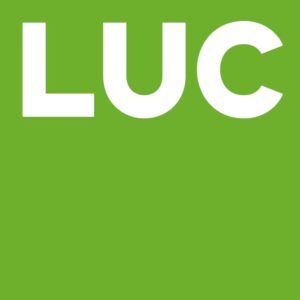Within the built and environmental sectors, there is currently a great deal of discussion and focus on the effect of the Covid-19 pandemic on community and stakeholder engagement. How do we interact with our communities to ensure we can achieve a balanced and representative response to our projects?
As a leading environmental consultancy, LUC has always been committed to an inclusive, and responsive approach to engagement. We adapt our consultation techniques to individual projects, getting to know our audiences and fulfilling client requirements. The current situation, whilst challenging, has highlighted the importance of community and social interaction, and the positive impact of community collaboration remains vital. This should still be harnessed within our project work during and post Covid-19 restrictions to create meaningful feedback for our projects.
Is online engagement the way forward?
Is online likely to be the only form of community engagement allowed during and even for some time after this pandemic? The answer in part must be yes in order to limit physical interaction and protect against the spread of this disease but said with caution as to how we achieve this. Digitally-focused engagement tools must be targeted and easy to use.
LUC already offers various online engagement tools which hinge around its Online Consultation Hub. The consultation content offered can be both informative and interactive and has almost unlimited potential. It can be tailored to an individual client’s needs and is GDPR compliant. Content can include:
- Links to questionnaires and surveys
- Plans, images, virtual models, or visualisations which can even be set up on walls in a virtual room – a 3D engagement space
- Interviews and video content
- An introduction to the project team, including photos and/or video messages
- An interactive map with the ability to drop pins or draw shapes and add comments to express views, for example, ‘this busy road makes it difficult to access the park’, or to ask questions, for example ‘why have we put benches here?’
- A virtual whiteboard where general comments or questions can be included
- A link to register to attend a virtual workshop or presentation
- Links to social media platforms e.g. Facebook, Twitter, Instagram
This is an exciting and innovative development that provides continuity for many of our environmental projects including Green Infrastructure Strategies, Environmental Impact Assessment (EIA), Landscape and Visual Impact Assessment (LVIA) and Masterplans which could otherwise be delayed during this time.
Technology in community engagement
Reliable technology is clearly an important factor when considering online consultation. The UK Government has confirmed that universal high-speed broadband will be delivered by a regulatory Universal Service Obligation (USO), giving everyone in the UK access to speeds of at least 10Mbps by March 2020. This is the speed that Ofcom, the independent regulator states is needed to meet the requirements of an average family.
The rise of smartphone technology offers an incredible opportunity to increase engagement with our communities. Online engagement tools must be compatible with mobile devices as they will be the primary method for online engagement.
The Online Consultation Hub may provide the answer to immediate and future questions raised around social distancing and the impacts on more traditional face-to-face consultation techniques, but perhaps there are other methods as well?
LUC firmly believes that effective community and stakeholder engagement needs to be inclusive and respond to the audience in question. Whilst virtual and online techniques will be a solid foundation for engagement, this is also an opportunity to reflect on how we can adapt our more traditional consultation tools in order to ensure our engagement is inclusive.
Community engagement for those offline
Hard-to-reach groups will now include those not able to access the internet at home, who would only have more limited immediate access to shared online resources via libraries and social hubs. These sectors of the community may need more targeted delivery, and this is where we will need further innovation to create a more tangible platform for consultation.
We could look to our essential services and activities such as supermarkets, post offices, GP practices and even the shared stairwell of our apartment blocks as a place to share content. Community noticeboards, local newspapers and newsletters all offer potential for interaction. This type of engagement would need to be coupled with the ability to respond with free-post envelopes, telephone consultations and eventually socially distanced face-to-face discussions.
Engagement ‘activities’ specific to an audience or demographic could be designed to be undertaken in people’s homes and could include family competitions or telephone interviews with our elderly community to create oral history recordings.
The outputs from these hands-on activities can then be fed back into the Online Consultation Hub, or the newsletter, or the local paper via local news websites providing continued feedback and inclusion. So long as the planning system rightly demands it, and our clients remain committed to it, LUC will continue to adapt its techniques for truly meaningful and innovative community and stakeholder engagement accordingly.
If there is one positive thing that has been demonstrated by this crisis, it is that communities can be resilient and are ready to be empowered through discussion and feedback to influence positive change, particularly relating to the environment in which we all live, work and play.
This article originated from environmental consultancy LUC. LUC is an award-winning environmental consultancy providing planning, impact assessment, landscape design, ecology and geospatial services to a wide range of public and private sector clients. With a team of over 180 skilled professionals, LUC’s expertise extends from advice on housing and mixed use development, renewable energy and infrastructure to assessing landscape change. Consultation and community engagement for Local Plan strategy development, strategic options appraisal, evidence studies and policy formulation are key parts of LUC’s work. During COVID-19, LUC has been able to provide continuity on a range of projects by adapting its engagement techniques. If you would like to know more about LUC’s engagement offer, please contact Diana Manson or Emily Beedham.

